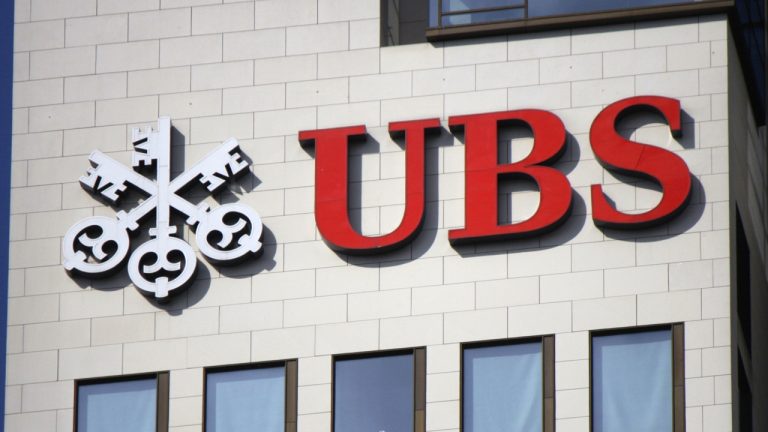 The English football team Watford FC has partnered with the digital asset investment firm Republic to sell 10% of the club to fans and investors. Although fans won’t receive voting rights, the stake will provide dividends to holders. Watford FC Collaborates With Republic to Sell 10% Stake to Supporters Watford Football Club, commonly known as […]
The English football team Watford FC has partnered with the digital asset investment firm Republic to sell 10% of the club to fans and investors. Although fans won’t receive voting rights, the stake will provide dividends to holders. Watford FC Collaborates With Republic to Sell 10% Stake to Supporters Watford Football Club, commonly known as […]
Spot and levered Bitcoin positions have outperformed Berkshire Hathaway stock performance since early 2019. It is time for Warren Buffett to buy Bitcoin?
Warren Buffett, the renowned investor and chairman of Berkshire Hathaway, celebrated his 93rd birthday on Aug. 30. Throughout his lengthy career, he has adhered steadfastly to a value investing strategy that bears some resemblance to the "buy and hold" approach often associated with cryptocurrencies.
However, Buffett’s focus is on assets with strong earnings potential, and investing in companies and sectors where he and his team possess a deep understanding of the associated risks, competition, and advantages.
The question is whether such a laser-eyed strategy can outperform Bitcoin (BTC) in the long run. Moreover, investors should question why one of the greatest stock pickers of all time currently holds cash and short term bonds as the second largest position in his portfolio.
An interesting example of this approach is Berkshire Hathaway's largest holding, Apple (AAPL) shares. The company initially acquired these shares in early 2016 when the company was already valued at over $500 billion, so they were far from being early investors. Notably, Berkshire Hathaway continued to add to its AAPL investment in 2022, even though the stock had rallied over 500% since their initial purchase. This illustrates Buffett's commitment to long-term investment strategies, regardless of recent price movements.
In a February 2012 shareholder letter, Berkshire Hathaway expressed concerns about the devaluation of paper currency and discussed the limitations of gold as a store of value. They argued that gold lacks practical utility, with demand for industrial and jewelry purposes falling short of production, and its price is largely driven by fear-driven sentiment which leads to only temporary price increases. In contrast, investments in productive companies generate substantial dividends and returns.
Berkshire Hathaway also noted that regardless of whether the future currency is based on gold, seashells, or paper, people will always be willing to exchange a portion of their income for goods and services.
Regrettably for Buffett, Bitcoin’s price surged by 683% in the 12 months following his critical comments on the viability of non-productive commodities as a store of value. Moreover, on a 4-year horizon, Bitcoin's gains amounted to a staggering 9,014%.
To compare the performance of Berkshire Hathaway's stock holdings to Bitcoin, considering Buffett's focus on earnings and yield, which is fundamentally different from the characteristics of commodities like gold or Bitcoin, we calculated Berkshire Hathaway's stock performance using a factor of 3 to simulate a leveraged position.

If an individual had invested $1,000 in Bitcoin (spot) and initiated a leveraged long position in Berkshire Hathaway shares in early 2019, they would have observed a return of $7,020 in BTC compared to $5,623 in Buffett's holding company.

Similarly, for an investment starting in 2017, it would have resulted in $3,798 in BTC, as opposed to $1,998 using the leveraged long strategy in Berkshire Hathaway's shares.
It's important to note a potential loophole in Buffett's investment thesis: Berkshire Hathaway is currently maintaining a record-high $147 billion in cash equivalents and short-term investments, representing 18.5% of the company's total market capitalization. This raises questions about whether they are waiting for better entry points into selected stocks or if they deem the 5.25% returns on fixed-income investments to be satisfactory.
This scenario highlights that even the most accomplished stock market investor may have reservations about deploying their cash. It also prompts questions about whether some of the funds currently on the sidelines, including the $5.6 billion in money market funds, might seek alternative forms of protection if inflation makes a resurgence.
Bitcoin may not be a perfect store of value, and its volatility has been a subject of concern. However, it's essential to acknowledge that Bitcoin has yet to face a global economic recession, making it premature to pass definitive judgment.
Additionally, the consistent outperformance of Bitcoin's price compared to Berkshire Hathaway shares suggests that investors are increasingly viewing it as a viable alternative store of value.
In light of this, Berkshire Hathaway's substantial cash position serves as a potential cautionary note for those skeptical about Bitcoin. With Bitcoin market's total capitalization currently standing at $500 billion, it signals a significant and untapped potential for it to play in the financial landscape.
This article is for general information purposes and is not intended to be and should not be taken as legal or investment advice. The views, thoughts, and opinions expressed here are the author’s alone and do not necessarily reflect or represent the views and opinions of Cointelegraph.
 After Credit Suisse Group AG announced it would borrow 50 billion Swiss francs from the Swiss National Bank, UBS Group AG is reportedly considering acquiring the banking giant. However, UBS is requesting that the government issue a backstop to protect against any losses if it purchases Credit Suisse. According to unnamed sources familiar with the […]
After Credit Suisse Group AG announced it would borrow 50 billion Swiss francs from the Swiss National Bank, UBS Group AG is reportedly considering acquiring the banking giant. However, UBS is requesting that the government issue a backstop to protect against any losses if it purchases Credit Suisse. According to unnamed sources familiar with the […]
DCG has reportedly received offers for CoinDesk exceeding $200 million in recent weeks, which at a purchase price of $500 thousand would be a 39,900% return on its initial investment.
Crypto media outlet CoinDesk is reportedly considering a potential sale as its parent company Digital Currency Group (DCG) looks to strengthen its balance sheet.
According to the Wall Street Journal, CoinDesk has sought the help of investment bankers from financial advisory firm Lazard, who are helping the firm weigh options including a full or partial sale.
You know, I just realized that Coindesk is for sale. pic.twitter.com/QqmBPOClpu
— Charles Hoskinson (@IOHK_Charles) January 19, 2023
DCG has purportedly received multiple offers exceeding $200 million to buy out the media firm over the last few months, which would result in a phenomenal return on their investment given DCG supposedly acquired the company for just $500,000 in 2016.
Barry Silbert’s DCG appears to be in serious financial strife recently, and announced to shareholders on Jan. 17 that it would be halting dividends in an effort to strengthen its balance sheet and “preserve liquidity.”
On Jan. 18, Bloomberg reported that another DCG subsidiary, crypto lending firm Genesis Global, was planning to file for bankruptcy after revealing it owed creditors over $3 billion — likely a leading factor contributing to DCG’s financial woes.
CoinDesk and Genesis are among some 200 crypto-related businesses in DCG’s venture capital portfolio, according to its website. Other companies that DCG owns include asset management firm Grayscale Investments, crypto exchange Luno, and advisory firm Foundry.
Related: Gemini and Genesis’ legal troubles stand to shake up industry further
Some believe that CoinDesk’s article in November exposing the irregularities in Alameda Research’s balance sheet was the first domino that eventually led to the fall of crypto exchange FTX and the liquidity issues now being faced by Genesis and its parent company DCG and the wider crypto market.
Cointelegraph has reached out to CoinDesk for confirmation that a potential sale was being considered, but was yet to receive an answer at the time of publishing.
 According to a shareholders’ letter from Digital Currency Group (DCG) viewed by finance and crypto publication Coindesk, the company has suspended dividends until further notice. This news follows the U.S. Securities and Exchange Commission (SEC) charging a subsidiary firm of DCG, Genesis Global Capital, with operating an “unregistered offer and sale of securities to retail […]
According to a shareholders’ letter from Digital Currency Group (DCG) viewed by finance and crypto publication Coindesk, the company has suspended dividends until further notice. This news follows the U.S. Securities and Exchange Commission (SEC) charging a subsidiary firm of DCG, Genesis Global Capital, with operating an “unregistered offer and sale of securities to retail […] In line with its hardline stance on cryptocurrencies, the Central Bank of Russia (CBR) has issued a recommendation against the listing of securities tied to crypto assets on the country’s stock exchanges. The “preventive measure” will not affect state-issued digital currencies. Bank of Russia Worried About Common Investors’ Exposure to Crypto Derivatives Russia’s central banking […]
In line with its hardline stance on cryptocurrencies, the Central Bank of Russia (CBR) has issued a recommendation against the listing of securities tied to crypto assets on the country’s stock exchanges. The “preventive measure” will not affect state-issued digital currencies. Bank of Russia Worried About Common Investors’ Exposure to Crypto Derivatives Russia’s central banking […]